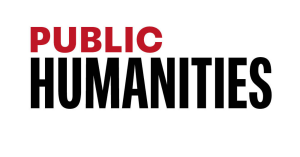
Setting a manifesto for Humanities
We have seen a huge global decline in humanities majors and faculty positions and Public Humanities reminds us of its fundamental power and significance.
“Public humanities happens whenever humanities scholarship interacts with public life. The humanities study the things humans make – our art, writings, thoughts, religions, governments, histories, technologies, and societies – helping us understand who we are, what we do, how we do it, why, and with what consequences."
That is the definition provided by Jeffrey R. Wilson and Zoe Hope Bulaitis, Editors-in-Chief of Public Humanities, an open access journal launched this week by Cambridge University Press.
They continue: "For individuals, these studies are tools for living a meaningful life, meeting a basic human need to understand the things that bring us joy and sorrow.”
The struggle with humanities
The need for this journal is clear: we have seen a huge global decline in humanities majors and faculty positions. Anti-humanities rhetoric has dominated funding allocations from educational bodies demanding career relevance.
In this scenario Public Humanities reminds us of humanities’ fundamental power and significance.
Robert D. Newman, a contributor to the inaugural issue, explains, “The role of the humanities in a civil society stems from the connections made between the lessons learned from history, literature, and philosophy, and the links between our personal and collective lives.”
He continues, “No area of study is so fundamentally linked to human rights, compassion, the mutuality of the individual and the collective, and the essential preservation and exploration of freedom through life, liberty and the pursuit of happiness.”
How to teach humanities
Without effective teaching, the future for the study of Humanities is bleak.
Science has always found it easier to prove its worth, with the study of STEM subjects sometimes a subtext to messages such as “keep the research funding flowing” and “study this subject and get a well-paid job.” The advent of artificial intelligence has strengthened this perceived notion.
Jonathan Bate, a contributor to this issue, declares “It is time to demonstrate how Arts and Humanities disciplines feed into our engines of economic prosperity. They are indeed a true science; might outcomes have been different if Anglophone universities had referred to them not as Humanities but Human Sciences or Moral Sciences?”
He continues with thoughts that repackaging Humanities knowledge and methods in ways that demonstrate value to students, funders, and the public, is essential. The pressing subject of climate change, for example, is one area where Humanities can play a hugely important part alongside the sciences – but there are many more.
A journal that answers these questions
The research in Manifesto, the first themed issue of Public Humanities, demonstrates the breadth, depth, and value of the humanities.
Its remit ranges from historical examples of the humanities at work in the world, to theoretical debates about the field today; from governmental policy related to the humanities, to scholarly interventions in ongoing social problems.
“It’s scholarship written with fire and footnotes”, declare its Editors-in-Chief, adding that the publication will be “fun, fearless, and actively engaged with the world”.
Wilson concludes: “News coverage often depicts a crisis in the humanities. However, if we think about the interpretive thoughts and conversations that happen in our daily lives – on the internet, at the dinner table, at the pub, on cable news, with our friends – the public humanities are absolutely booming.”
Jo Skelton
Cambridge University Press
+44 1223 326165
jo.skelton@cambridge.org
Visit us on social media:
Facebook
X
LinkedIn
Instagram
YouTube
Other
Distribution channels: Book Publishing Industry, Culture, Society & Lifestyle, Education, U.S. Politics
Legal Disclaimer:
EIN Presswire provides this news content "as is" without warranty of any kind. We do not accept any responsibility or liability for the accuracy, content, images, videos, licenses, completeness, legality, or reliability of the information contained in this article. If you have any complaints or copyright issues related to this article, kindly contact the author above.
Submit your press release
